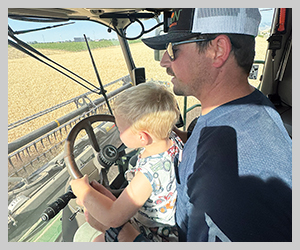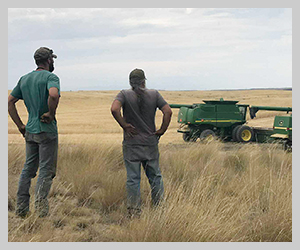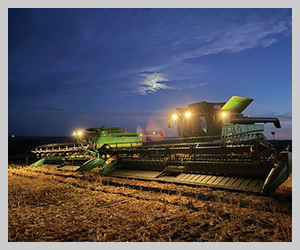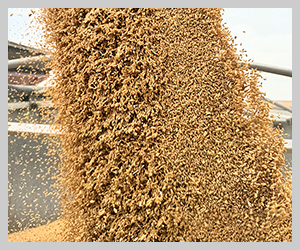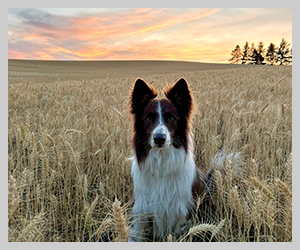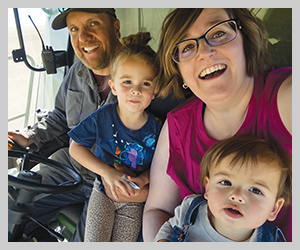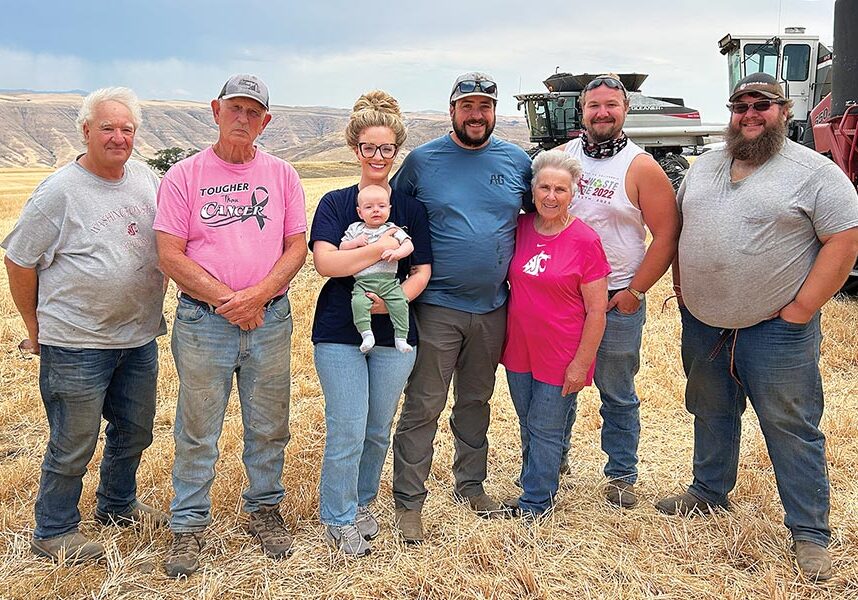
“In Garfield County, if you throw a rock, you are going to hit a Koller,” said Wyatt Koller with a laugh as he described how his great-grandparents, Richard and Ollie, arrived in the area and established the family’s farm after stints blacksmithing and working at a slaughterhouse. Wyatt’s grandfather, Edwin, was one of their 13 children.
From the beginning, Edwin was resourceful, a trait the current generation seems to share.
“When he (Edwin) was about 6, the family moved to a different area of the farm, and he drove one of the wagons with their stuff there. He went to the Lynn Gulch School from first to eighth grade, but it took him a while to get through school because whenever there was work that needed to be done on the farm, my great-grandfather wouldn’t have him go to school, and he’d just work on the farm that day,” Wyatt said. “In 1924, when my grandpa was 13, he drove, a wagon with a 10-mule team hauling wheat down the Illia Grade. I’ve seen pictures of it, and I don’t know how they did it back in the day.”
Edwin would eventually acquire his own land, and he and his wife, Doris, would have four sons, three of which also came home to farm. Wyatt’s father, Roger, began farming in 1981 until his death in 2021, which is when Wyatt, who was working as a sales agronomist for Wilbur Ellis at the time, took over with his mother, Diane. The Kollers grow both soft white winter and spring wheat with a small amount of spring canola in the mix. They are primarily no-till and minimum tillage.
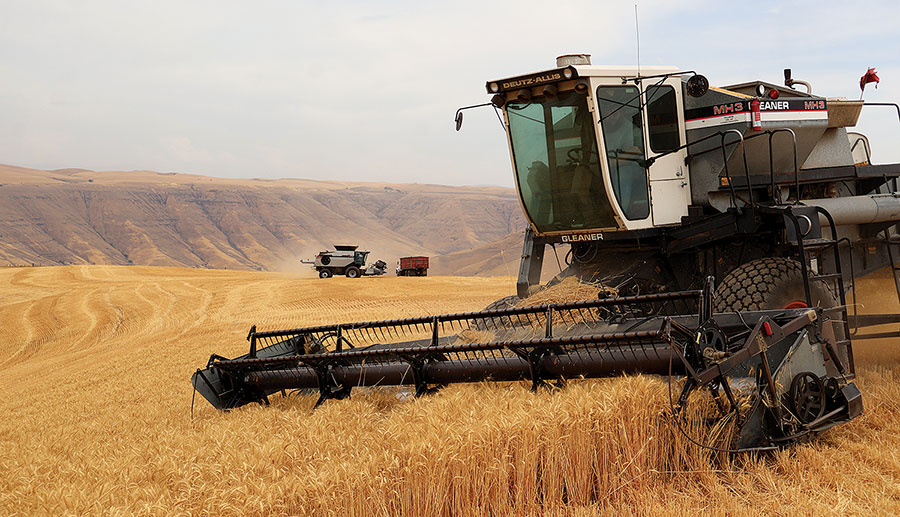
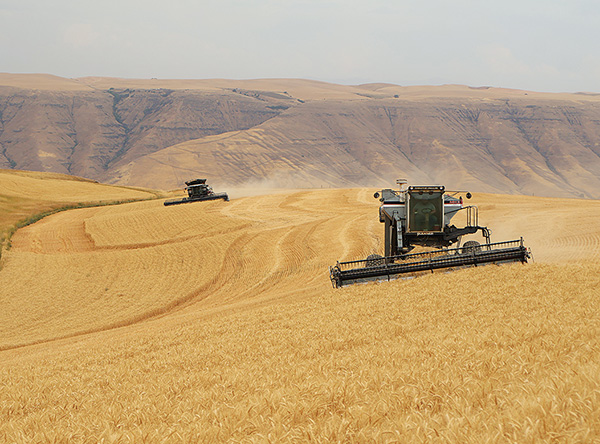
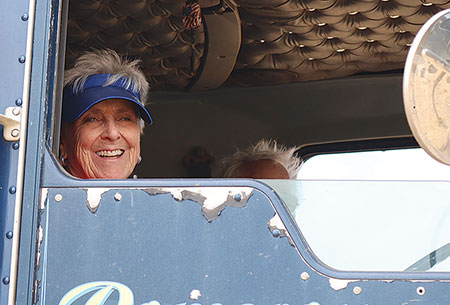
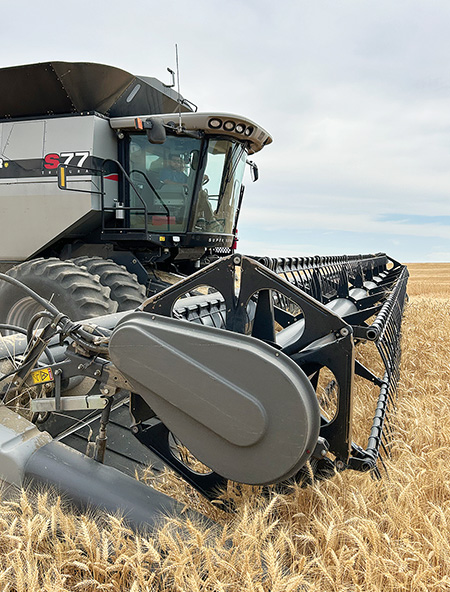
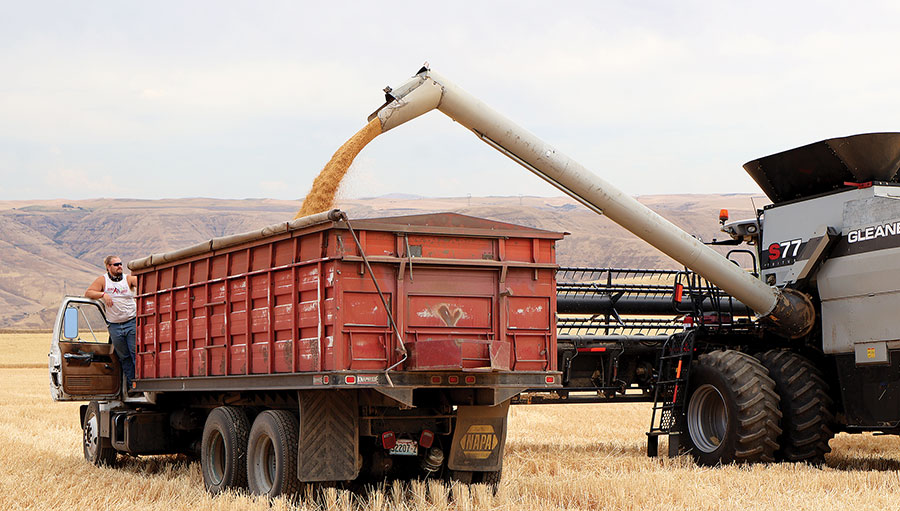
“We are trying to move away from conventional summer fallow. It’s not only time consuming, but not good for the ground to be worked that much,” Wyatt explained.
Wyatt said growing up, he wasn’t sure he wanted to return to the farm. During his senior year of high school, however, he was elected state FFA vice president.
“Taking that year off between high school and college and traveling the state and promoting not only the FFA, but agricultural education as a whole, I think I warmed up to the idea of returning to the farm a lot more,” he said.
That Koller resourcefulness resurfaced last year, when Wyatt and his wife, Colleen, lost their home, crops, and some equipment in the Lower Granite Fire. The house that Wyatt’s father grew up in was also destroyed, and an uncle that Wyatt farms with lost a substantial amount of crop. Wyatt said he was fighting the fire in his tractor when he realized the back of the tractor was on fire; he received minor burns exiting the vehicle.
“I stopped the tractor, and I looked around the cab for probably five minutes searching for the fire extinguisher,” he recalled. “I finally looked, and the flames were getting close to the diesel tanks, and I went, ‘okay, I have to get out of this thing.’ It’s been an interesting year, to say the least.”
Wyatt and Colleen welcomed a son, Weston, in April. He said having his own family has strengthened his desire to keep the family legacy going.
“My goal is to continue to try and grow good yielding crops as sustainably as possible because I want to make sure that this place is around for him when he grows up if this is what he would like to do when he’s older,” Wyatt said. “It almost adds a little extra pressure just because I want to be able to keep this place in the family and continue to work hard to provide, not only for my family, but a place for him to come home to if he chooses to.”





